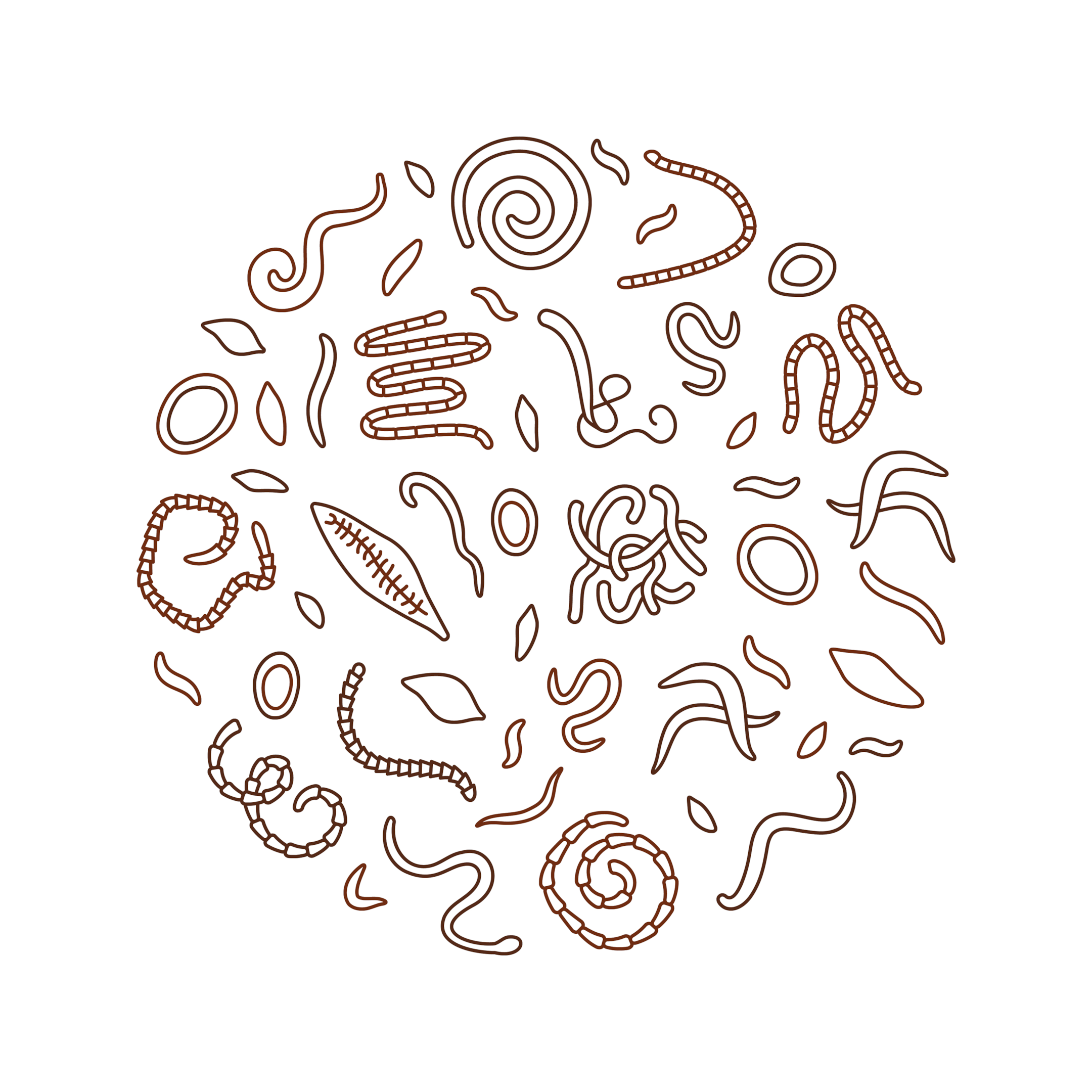What are threadworms?


If you're a parent, you’ve probably heard about threadworms—or maybe you've already had to deal with the not-so-pleasant reality of them. Also known as pinworms, these tiny parasites are incredibly common among children, especially those of school age. While the idea of worms might sound alarming, the good news is: they're treatable, manageable, and preventable with the right care and products.
Let’s explore what threadworms are, how they spread, and what you need to keep your little one (and your home) protected. We’ll also share three essential product ranges that can help support your child’s health before, during, and after treatment.Threadworms spread when a child unknowingly swallows the microscopic eggs of the worm, which can be found on contaminated hands, clothing, or bedding. The eggs can also be transferred from surfaces like toys, bed linens, and even food. Once ingested, the eggs hatch in the intestines, and the worms lay new eggs around the anus, continuing the cycle.

Let me summarise some essential facts about threadworm infection
Children who are infected with threadworms often show signs such as:
Itchy bottom (especially at night)
Trouble sleeping or restlessness
Irritability
Mild tummy pain
Visible worms in stools or around the anus
If you suspect your child has threadworms, it's important to act quickly to avoid the infection spreading to others in the household.
The good news? Treatment is simple. Doctors typically prescribe antiparasitic medication, often followed up with a second dose two weeks later. But it doesn’t end there - you’ll need a solid hygiene routine and immune-boosting support to make sure those worms don’t come crawling back.
Proper handwashing is one of the most effective ways to prevent reinfection. After treatment, make hand hygiene a habit—especially before meals, after using the bathroom, and first thing in the morning.
Our Baby & Child Soap collection features gentle, effective cleansers that are soft on delicate skin but tough on germs. Try the Bio-D Cleansing Hand Wash Fragrance Free or the Clara Concentrated Hand Soap - 500ml for the best results.
Parent Tip: Keep soap next to every sink and use songs or fun games to help kids scrub long enough!
Worms—and even the medications used to treat them—can disrupt your child’s digestive balance. Probiotics help restore healthy gut bacteria, support digestion, and can even reduce tummy troubles during recovery.
From drops to chewables, our probiotic range is kid-approved and easy to add to your child’s daily routine. Check out Biocare Children's Mindlinx Complex 60g or Bettervits Kid's Probiotics to support your baby's gut health.
From soothing creams for irritated skin to treatment aids and supportive supplements, this collection has everything you might need during a threadworm episode.
Whether you’re managing symptoms like itching or boosting your child’s overall wellness, our healthcare range helps make the healing process smoother—for you and your little one.
Wash bedding, towels, and pyjamas daily for a week after treatment
Clean toys, high chairs, and doorknobs regularly
Trim nails short and discourage nail-biting or thumb-sucking
Encourage children to bathe every morning to remove eggs.
Disinfect toilet seats and bathroom surfaces often.
After the treatment, strictly practice the hygiene protocols to avoid future recurrence. Once the signs are apparent, you need to seek medical help. It is also required during pregnancy, breastfeeding and for a baby less than 6 months of age. The potential complications of an untreated infestation are urinary tract infections, secondary bacterial infections at the site of scratching and appendicitis.
Threadworms are common, but with the right treatment, hygiene habits, and health support, they don’t have to be a recurring nightmare. Remember: clean hands, a healthy gut, and quick action are your best defense.
At Welzo, our team of health experts is available to guide you, and our page also has many treatment options for internal parasites. Click here for consultation.








Plus get the inside scoop on our latest content and updates in our monthly newsletter.